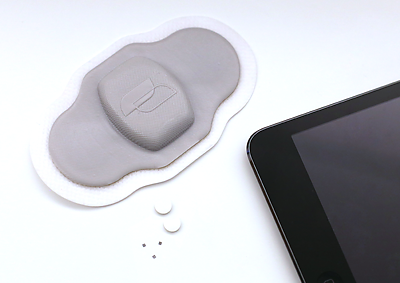FDA To Review Application for Abilify Pill With Ingestible Tracking Device
Abstract
Although digital medicines have the potential to improve health outcomes, it remains to be seen how eager patients and psychiatrists will be to embrace the technology.
Otsuka Pharmaceutical and Proteus Digital Health recently announced that the Food and Drug Administration has agreed to review the New Drug Application for the combination product of Abilify (aripiprazole) embedded with the Proteus ingestible sensor for the treatment of schizophrenia, acute treatment of manic and mixed episodes associated with bipolar I disorder, and an adjunctive therapy for the treatment of major depressive disorder.

Otsuka Pharmaceutical and Proteus Digital Health's monitoring system for Abilify includes a mobile app, pills with an embedded sensor, and a stick-on patch that tracks patient's body data and adherence to the medication.
The modified Abilify tablet contains an ingestible sensor that communicates with a sensor patch worn by the patient and medical software application. The patch records and time stamps information from the ingestible sensor in addition to collecting other patient metrics, including rest and activity patterns. Such information can then be transmitted to a patient’s mobile phone or Bluetooth device. Patients as well as physicians and caregivers—with the patient’s consent—can view the information using a secure web portal.
“The ingestible sensor measures medication-taking patterns and physiological response of the patient,” said Timothy Peters Strickland, M.D., a psychiatrist and senior director of Global Clinical Development at Otuska. With the ingestible sensor, “we can actually tell that the patient ingested the pill and not just punched it out of a card or removed the cap of the pill bottle.”
John Kane, M.D., a professor of psychiatry at the Zucker Hillside Hospital and the Hofstra North Shore-LIJ School of Medicine, conducted a pilot study with the antipsychotic/medical device. The pilot study consisted of 28 patients with bipolar disorder or schizophrenia.
The results, published in the Journal of Clinical Psychiatry in 2013, showed that 27 out of 28 people completed the study. Of those who completed the study, 70 percent reported the software for the medical device to be easy to understand; 89 percent considered the device to be useful to them in terms of adherence. The most common adverse event was minor skin irritation that occurred at the site of the wearable sensor.
“The technology can provide important advances in addressing highly prevalent problems in patients adhering to medications,” Kane told Psychiatric News. However, Kane pointed out, major concerns regarding the use of this technology are likely to arise, such as how the information obtained by the device will be protected.
William Carpenter, M.D., a professor of psychiatry and pharmacology at the University of Maryland School of Medicine, agreed.
In addition to issues of privacy, Carpenter told Psychiatric News that convincing people who are already vulnerable to paranoia to take a medication that may be viewed as highly intrusive as well as the potential high cost of the medicine could present additional challenges.
Carpenter described several other questions about the therapy, including how best to determine candidates for the ingestible-sensor medications. Additionally, he said psychiatrists may need to consider questions such as, “Is this an acceptable privacy compromise in an involuntary commitment?” or “Will the device lead to fewer in-person visits with clinicians and reduce the chances for integrative treatment and early detection of relapse?”
Carpenter concluded, “Some [psychiatrists] will be ready for this innovative approach of treating mental illness, and if this device is successful—with little compromise to the patient—the field will embrace it.” ■



